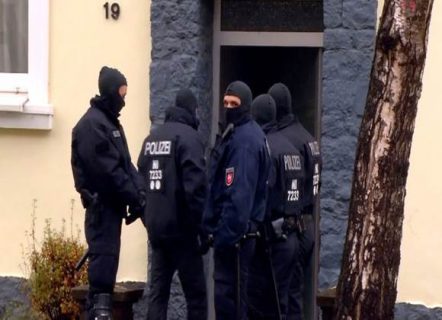Around half of those people (32) are currently behind bars, either in prison or pre-trial custody, the government informed Alternative for Germany (AfD) lawmaker Martin Hess.
He argues that the police are not able to monitor those considered dangerous due to a lack of staffing and for legal reasons. Hess himself is a former police officer.
The far-right politician said such individuals should be deported "or kept in custody until they no longer pose a threat."
According to the Interior Ministry, authorities believe that over 1,060 Islamist extremists left Germany for Syria and Iraq in the past few years. Around a third of them are thought to have since returned, now that Islamic State has been largely rooted out of those countries.
More than 100 of the returnees are known to have fought for the terrorist militia, the ministry says.
Those classified as dangerous are believed to be capable of carrying out a terrorist attack or politically motivated
He argues that the police are not able to monitor those considered dangerous due to a lack of staffing and for legal reasons. Hess himself is a former police officer.
The far-right politician said such individuals should be deported "or kept in custody until they no longer pose a threat."
According to the Interior Ministry, authorities believe that over 1,060 Islamist extremists left Germany for Syria and Iraq in the past few years. Around a third of them are thought to have since returned, now that Islamic State has been largely rooted out of those countries.
More than 100 of the returnees are known to have fought for the terrorist militia, the ministry says.
Those classified as dangerous are believed to be capable of carrying out a terrorist attack or politically motivated









 Home
Home Politics
Politics











